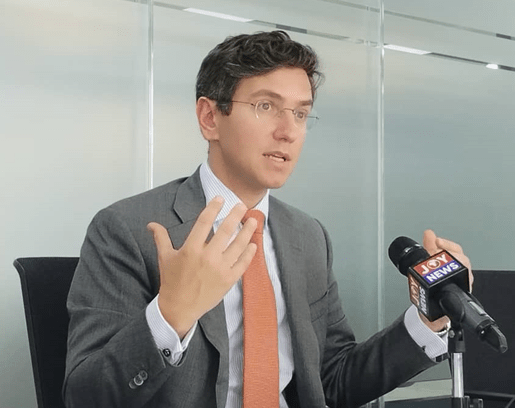Puma Energy’s commitment to the provision of energy security in Ghana has been reinforced by its investment in upgrading its strategic product storage capacity and distribution infrastructure that is able to reach all parts of the country via its four storage sites across Accra, Tema Ridge, Takoradi and Kumasi with 169m3 (169,000 litres) of capacity.
Fuel and energy markets around the world have been highly volatile since the Russian invasion of Ukraine in February 2022 but Ghana’s robust fuel distribution network has left it in a better position than many comparable countries – thanks, in part, to the investment by Puma Energy in terminal infrastructure over many years.
The Takoradi Terminal supports the government’s policy to improve regional fuel supply with the new gasoline and gas oil terminals adding 32,000m³ capacity, servicing the west of the country – which is the oil and gas exploration hub of Ghana. Puma Energy has also invested in fourteen solar power generation systems at its service stations, depots and terminals in Ghana – an initiative that aims to reduce reliance on imported energy, and helps the country prepare for the future of energy.
The downstream petroleum industry in Ghana is deregulated but the current global fuel price volatility is disproportionately impacting energy imports in African countries. Specifically, it is impacting inflation, reducing foreign exchange reserves, and limiting the ability to secure fuel on the global markets. Alongside a robust storage and distribution system, these are also issues the government and regulators in Ghana are trying to proactively manage.
Puma Energy’s Head of Africa, Fadi Mitri, said: “Puma Energy has been able to invest in Ghana’s energy infrastructure, thanks to its historically stable regulatory environment, and the country is seeing the benefits of our investment.
“In line with our strategy we have invested in our fuel storage and distribution network to promote energy security for road and air transport, and we have invested in our service stations to improve our customers’ experience. We have also invested in fourteen solar energy projects to help prepare Ghana for the future of energy. This investment, and the benefit it brings, is only possible thanks to Ghana’s stable, predictable regulatory regime, where innovation and investment is encouraged.
“The energy industry is at the heart of the post-pandemic recovery. However, it faces the conflicting challenges of security, accessibility and environmental sustainability. Being able to meet all three challenges requires a mix of strategies, with all stakeholders involved.”
Puma Energy’s contribution to infrastructure for downstream operations
- Puma Energy and its parent have invested US$450m in Ghana over the last decade.
- Puma Energy has built strategic infrastructure at its four sites; Accra, Tema Ridge, Takoradi, and Kumasi to aid in operational efficiency and support Ghana’s petroleum hub.
Puma Energy contribution to energy transition
Transitioning to other forms of energy will not only help the Government of Ghana achieve their sustainable energy goals, it will also have several positive socio-economic impacts and may stimulate new industries which require clean, affordable and reliable sources of energy to thrive. Developing and maintaining renewable projects, such as solar, have been trumpeted as the way to go.
- Puma Energy is also diversifying its business by focusing more on transition fuels and clean energy solutions, with an immediate focus on its B2B customers. After the success of its solar projects at 11 service stations and a further three at depots and terminals in Ghana, the company plans to offer its commercial and industrial customers the chance to install solar on their sites in 2023.
- Puma intends to invest US$33million in solar solutions to commercial and industrial customers in Ghana and across Africa.
- Puma Energy will also ensure that 30 percent of its income (EBITDA) in Africa will come from clean and transition fuels by 2027.










